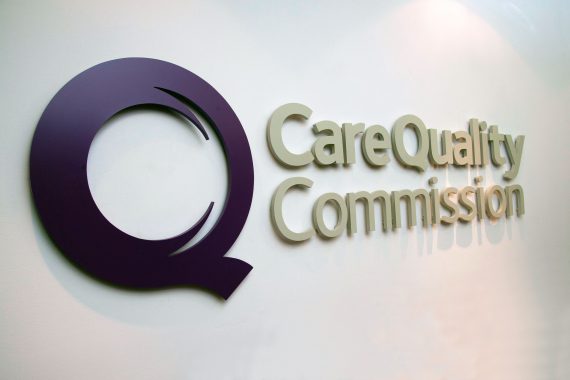On-site CQC inspections for outstanding practices will not return for the ‘foreseeable future’, its chief inspector for primary care said.
Speaking at Management in Practice London earlier this month (14 September), Rosie Benneyworth said that the CQC ‘certainly for the foreseeable future’ would not be doing more face-to-face inspections of ‘outstanding’ practices.
However, she would not rule out the possibility of reintroducing them at some point after the end of the pandemic.
At the onset of the coronavirus pandemic last year, the CQC paused its routine inspections to focus on activity where there was a serious risk to people’s safety.
However inspections resumed in April for GP services which had previously been identified as breaching regulations.
This included those rated as inadequate, requires improvement and good, along with services rated as requires improvement where there are no breaches of regulations, it said.
When asked if the CQC would continue to limit face-to-face inspections after the pandemic, Ms Benneyworth said: ‘I’m not going to sit here today and say we’ll never go back to face-to-face inspections for good and outstanding practices, because I don’t know.’
She added that this comes as the CQC aims to ‘be flexible’ and ‘responsive’,
And Ms Benneyworth further reiterated that she hopes the CQC’s monitoring systems will become ‘good enough so that we can pick up risks through that without having to cross the threshold’.
Earlier in the panel, she had said there was ‘no need to restart routine inspections in the way we used to do them’.
However, the BMA has said it is ‘seriously concerned’ about CQC’s remote monthly GP practice safety reviews that launched in July.
In June, a draft document revealed that the regulator planned to start carrying out remote checks on each GP practice every month to assess its risk to patients in July.
Meanwhile, the CQC has recently faced criticism from some GPs who perceived inspectors’ behaviour as inappropriate.
Two weeks ago, a small survey found that more than 70% of GPs from minority ethnic backgrounds described ‘CQC inspections and the behaviour of the CQC inspection team has been a traumatic experience, rather than a positive and constructive experience’.
Commenting on reports of such behaviour at the panel, Ms Benneyworth said: ‘I expect my inspectors to behave professionally, supportively, constructively. If that’s not happening, let me know.’
Elsewhere at the event, leading GP Dr Farzana Hussain said that Integrated care systems (ICS) will not help solve the current GP shortage.
A version of this article was first published by Pulse’s sister title Management in Practice
Pulse October survey
Take our July 2025 survey to potentially win £1.000 worth of tokens













